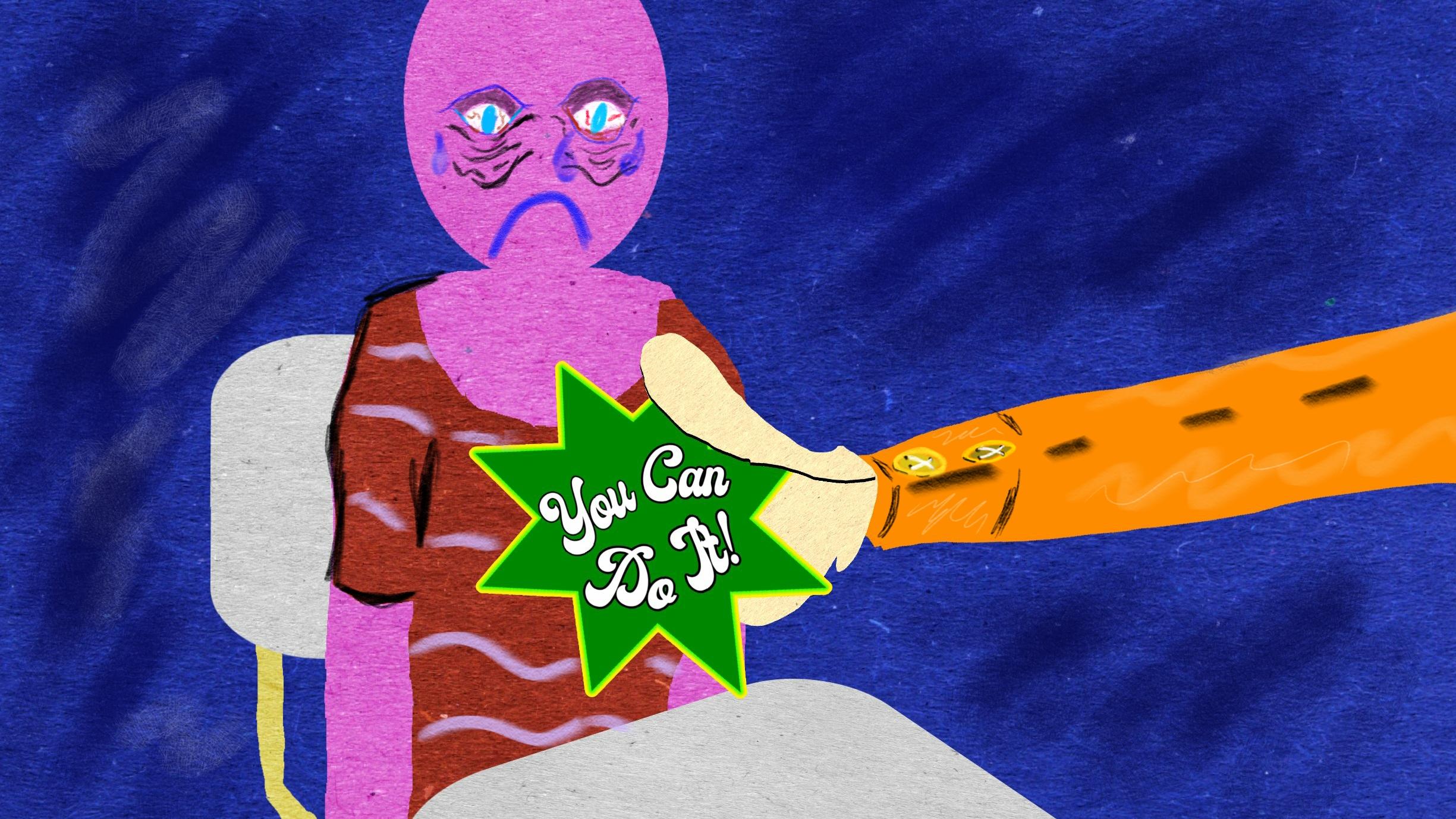By Karly Benson
The state of a student’s mental health is often hanging by a precarious thread. However, the reassurance of a caring and approachable professor for at least the first three weeks of classes can certainly help. While this may seem challenging given the crushing pressures of seeking tenure, here’s a list of low-effort things you can do as a prof to make it seem like you care, even though you don’t!
Make some enthusiastic speeches
Whether it’s online or in-person, standing in front of anxious students with a great big smile can go a long way. Despite the fact that you’ll be assigning increasingly impossible amounts of work every week, reminding your students they are valid, regardless of their feelings, will help them realize that you care.
Be sure to create an approachable image of yourself, regardless of how approachable you intend to be. Even though your office hours may only be from 1 to 2 p.m. every other Wednesday, rest assured that during those hours, you’ll be listening! With that being said, it’s definitely a good idea to remind them that there will be no office hours for the last three weeks before the final exam—because you deserve some “me time.”
Display an inspirational quote as part of your Zoom backdrop
Zoom courses this semester are particularly difficult given that many students’ in-person dreams were crushed. Not to worry! Looking out for their deteriorating mental health can be made easy through the use of motivational quotes.
Scour BrainyQuote for a saying of the week that promotes mental health, print it out, stick it up behind your chair so it’s seen in your background, type it immediately into the Zoom chat upon students’ entry and post it as a D2L announcement. Bombard the students with the quote so it becomes ingrained in their minds and they can repeat it to themselves through tears as they struggle to connect their laptop to Wi-Fi before the midterm. After all, repetition is the mother of learning and father of action, according to BrainyQuote.
Start with a wellness check-in poll or Kahoot
Questions for the poll may include “How are you feeling?”; “What’s your stress level out of 10?” and “If today were an ice cream flavour, which one would it be?” Making the students feel important, as if their voices are being heard, is the first step in promoting mental health.
Don’t worry about acknowledging their answers; real check-ins are far too time-consuming and can honestly be kind of a bummer. Polls are the perfect compromise of hearing students out and then immediately moving on.
Respect students’ time
As course loads are often heavy with dense material, allowing more than a few days between two major assignments can be a real relief for students. Giving a full week, which may seem like a stretch, will give the students the added luxury of going to bed before midnight and maybe even having a real dinner.
Also keep in mind that a three-hour lecture should be three hours! Instead of going over the allotted time by 30 minutes and bleeding into other classes, add all that extra material to D2L so they can complete it with whatever spare time they have. That’s called being a considerate prof!
Sign off with a smile
After hours of reading lectures directly off a slideshow, you’ll be just as exhausted as your students. But remember, your closing remarks are likely the only thing a student will absorb, so make them memorable! In an in-person setting, a farewell like “Take care” or “Stay safe” may be the spark a student needs to make it to their 6 to 9 p.m. lab without diverting course for the closest Chipotle.
The same applies online; closings like “Warm regards,” “Best wishes,” or even something as simple as “Kindly,” is a positive ending to any email. Sure, this seems like unnecessary work, but think about the incredible five-star Rate My Professors rating you’ll receive!












Leave a Reply